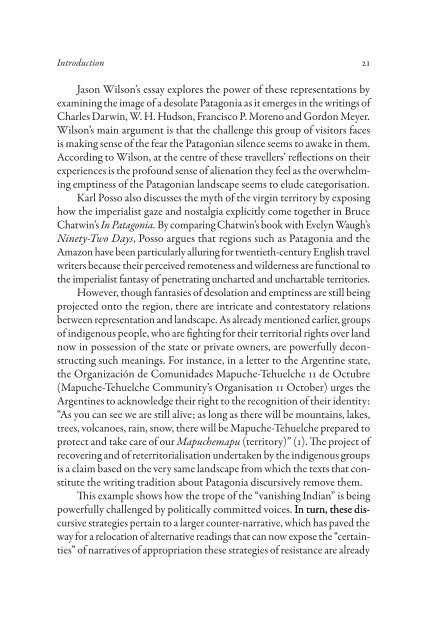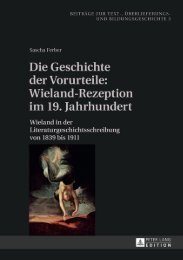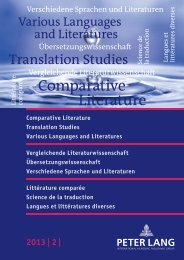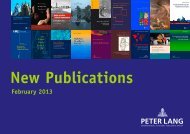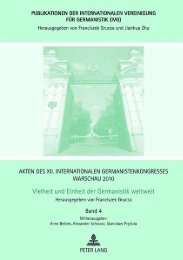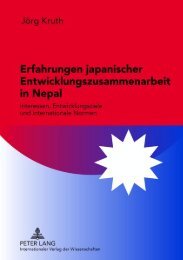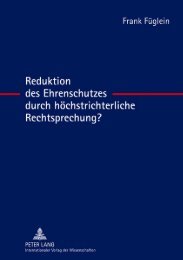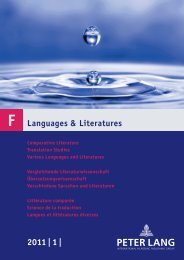Extract (PDF) - Peter Lang
Extract (PDF) - Peter Lang
Extract (PDF) - Peter Lang
You also want an ePaper? Increase the reach of your titles
YUMPU automatically turns print PDFs into web optimized ePapers that Google loves.
Introduction 21<br />
Jason Wilson’s essay explores the power of these representations by<br />
examining the image of a desolate Patagonia as it emerges in the writings of<br />
Charles Darwin, W. H. Hudson, Francisco P. Moreno and Gordon Meyer.<br />
Wilson’s main argument is that the challenge this group of visitors faces<br />
is making sense of the fear the Patagonian silence seems to awake in them.<br />
According to Wilson, at the centre of these travellers’ reflections on their<br />
experiences is the profound sense of alienation they feel as the overwhelming<br />
emptiness of the Patagonian landscape seems to elude categorisation.<br />
Karl Posso also discusses the myth of the virgin territory by exposing<br />
how the imperialist gaze and nostalgia explicitly come together in Bruce<br />
Chatwin’s In Patagonia. By comparing Chatwin’s book with Evelyn Waugh’s<br />
Ninety-Two Days, Posso argues that regions such as Patagonia and the<br />
Amazon have been particularly alluring for twentieth-century English travel<br />
writers because their perceived remoteness and wilderness are functional to<br />
the imperialist fantasy of penetrating uncharted and unchartable territories.<br />
However, though fantasies of desolation and emptiness are still being<br />
projected onto the region, there are intricate and contestatory relations<br />
between representation and landscape. As already mentioned earlier, groups<br />
of indigenous people, who are fighting for their territorial rights over land<br />
now in possession of the state or private owners, are powerfully deconstructing<br />
such meanings. For instance, in a letter to the Argentine state,<br />
the Organización de Comunidades Mapuche-Tehuelche 11 de Octubre<br />
(Mapuche-Tehuelche Community’s Organisation 11 October) urges the<br />
Argentines to acknowledge their right to the recognition of their identity:<br />
“As you can see we are still alive; as long as there will be mountains, lakes,<br />
trees, volcanoes, rain, snow, there will be Mapuche-Tehuelche prepared to<br />
protect and take care of our Mapuchemapu (territory)” (1). The project of<br />
recovering and of reterritorialisation undertaken by the indigenous groups<br />
is a claim based on the very same landscape from which the texts that constitute<br />
the writing tradition about Patagonia discursively remove them.<br />
This example shows how the trope of the “vanishing Indian” is being<br />
powerfully challenged by politically committed voices. In turn, these dis- dis-<br />
cursive strategies pertain to a larger counter-narrative, which has paved the<br />
way for a relocation of alternative readings that can now expose the “certainties”<br />
of narratives of appropriation these strategies of resistance are already


